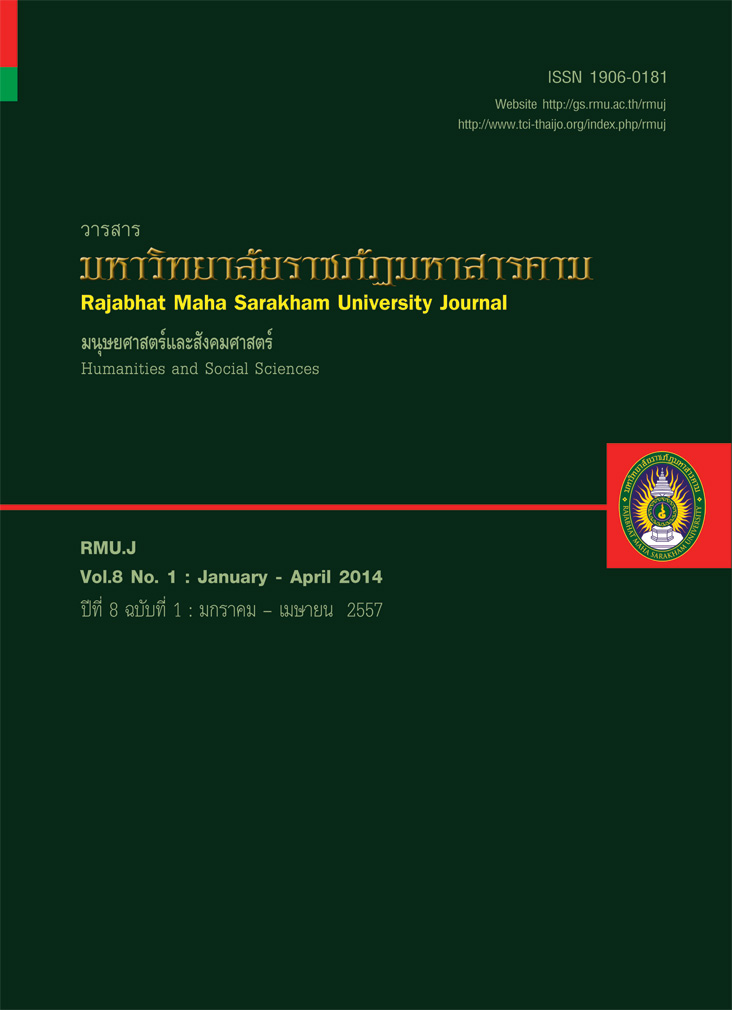การพัฒนาหลักสูตรฝึกอบรมเพื่อเสริมสร้างทักษะการบริหารเชิงกลยุทธ์ในการพัฒนาสถานศึกษา สู่มาตรฐานการศึกษาสำหรับผู้บริหารสถานศึกษาขั้นพื้นฐาน Training Curriculum Development for Improving Strategic Management Skills of Basic Education School Administrators for
Main Article Content
บทคัดย่อ
วัตถุประสงค์การวิจัยนี้ เพื่อพัฒนาหลักสูตรฝึกอบรมเพื่อเสริมสร้างทักษะการบริหารเชิงกลยุทธ์ในการพัฒนาสถานศึกษา
สู่มาตรฐานการศึกษาสำหรับผู้บริหารสถานศึกษาขั้นพื้นฐาน แบ่งเป็น 4 ระยะ ระยะที่ 1 การศึกษาข้อมูลพื้นฐาน โดย ศึกษาหลักการ
แนวคิด ทฤษฎี และงานวิจัยที่เกี่ยวข้อง ศึกษาทักษะการบริหารเชิงกลยุทธ์ในการพัฒนาสถานศึกษา และสำรวจความต้องการในการ
พัฒนาทักษะ ระยะที่ 2 การสร้างหลักสูตรฝึกอบรม โดยจัดทำร่างหลักสูตรและประเมินหลักสูตรก่อนนำไปใช้โดยผู้เชี่ยวชาญ ระยะที่ 3
การทดลองใชห้ ลักสูตรฝกึ อบรม เพื่อหาคา่ ดัชนีประสิทธิผล เปรียบเทียบผลสัมฤทธิ์กอ่ นและหลังการอบรม และ ประเมินหลักสูตรหลัง
นำไปใช้ และระยะที่ 4 การปรับปรุงหลักสูตรฝึกอบรม ผลการวิจัยพบว่า
1. ทักษะการบริหารเชิงกลยุทธใ์ นการพัฒนาสถานศึกษาสมู่ าตรฐานการศึกษา เปน็ ความสามารถปฏิบตั กิ ิจกรรมภายใตขั้นตอน
การวิเคราะห์สภาพแวดล้อม การกำหนดทิศทาง การกำหนดกลยุทธ์พัฒนา การจัดทำแผนพัฒนาการดำเนินงานพัฒนา และการประเมิน
ผลการดำเนินงานของสถานศึกษา ผู้บริหารสถานศึกษามีความต้องการพัฒนาทักษะอยู่ในระดับมาก
2. หลักสูตรฝึกอบรม มีองค์ประกอบ คือ หลักการและเหตุผล เป้าหมาย จุดมุ่งหมาย โครงสร้าง กระบวนการฝึกอบรม
สื่อ วัสดุ อุปกรณ์ และการประเมินผล ผู้เชี่ยวชาญ เห็นว่า ร่างหลักสูตรฝึกอบรมมีความเหมาะสมและมีความสอดคล้อง
3. ผลการทดลองใช้ พบว่า หลักสูตรมีค่าดัชนีประสิทธิผล (E.I.) เท่ากับ 0.6818 ค่าเฉลี่ยคะแนนผลสัมฤทธิ์หลังอบรมสูงกว่า
ก่อนอบรมอย่างมีนัยสำคัญทางสถิติที่ระดับ .01 เป็นไปตามสมมติฐานที่ตั้งไว้ ผู้เข้ารับการอบรม เห็นว่า หลักสูตรมีความเหมาะสม
อยู่ในระดับมากที่สุด หลังการอบรมผู้เข้ารับการฝึกอบรมได้ปฏิบัติทักษะการบริหารเชิงกลยุทธ์พัฒนาสถานศึกษาอยู่ในระดับมาก และ
4. ผลการปรับปรุงหลักสูตร ได้เอกสารฉบับสมบูรณ์ ได้แก่ หลักสูตรฝึกอบรม หน่วยการเรียนรู้ 8 หน่วย คู่มือผู้เข้ารับการอบรมและคู่มือวิทยากร
The objectives of the research were to develop a training curriculum for improving strategic management
skills of basic education school administrators based on the educational standard. The research methodology
was divided into 4 phases. Phase 1 was a primary study on theories, principles and related literature of
strategic management skills including analysis of need for strategic management skill development. Phase
2 focused on designing and developing a training curriculum assessed by experts. Phase 3 was to try a
training curriculum out to identify an efficiency index of the curriculum, compare learning achievement and
evaluate the training curriculum. Phase 4 focused on developing the training curriculum. The research results
were as follows”
1. The finding indicated that the average level of the strategic management skills of school administrators
focusing on contextual analysis, determining directions and development strategies, planning a development
process and evaluating outcomes of the administration was high.
2. The training curriculum consisted of 6 main parts: rationale, goals, learning objectives, contents,
process, teaching materials, and evaluation. The draft of curriculum assessed by the experts was appropriate
and consistent.
3. The finding indicated that the effectiveness index of the curriculum (E.I.) was 0.6818. The average
posttest score of the administrators was higher than that of pretest score at the .01 level of statistical significance,
which supported the hypothesis. Additionally, the finding showed that the average level of the opinion of the
trainees on the appropriateness of the curriculum was very high, and the trainees significantly improved their
skills in development strategy management.
4. The qualified training curriculum consisted of eight learning units, handbook for trainees, and handbook for trainers.
Article Details
1. บทความที่ลงตีพิมพ์ทุกเรื่องได้รับการตรวจทางวิชาการโดยผู้ประเมินอิสระ ผู้ทรงคุณวุฒิ (Peer Review) สาขาที่เกี่ยวข้อง อย่างน้อย 3 ท่าน ในรูปแบบ Double blind review
2. ข้อคิดเห็นใด ๆ ของบทความที่ลงตีพิมพ์ในวารสารมหาวิทยาลัยราชภัฏมหาสารคาม นี้เป็นของผู้เขียน คณะผู้จัดทำวารสารไม่จำเป็นต้องเห็นด้วย
3. กองบรรณาธิการวารสารมหาวิทยาลัยราชภัฏมหาสารคาม ไม่สงวนสิทธิ์การคัดลอกแต่ให้อ้างอิงแสดงที่มา


